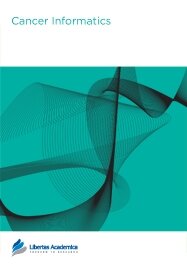

Publication Date: 03 Nov 2014
Type: Original Research
Journal: Cancer Informatics
Citation: Cancer Informatics 2014:Suppl. 5 89-100
doi: 10.4137/CIN.S14062

Reasoning that overexpression of multiple E2F-responsive genes might be a useful marker for RB1 dysfunction, we compiled a list of E2F-responsive genes from the literature and evaluated their expression in publicly available gene expression microarray data of patients with breast cancer, serous ovarian cancer, and prostate cancer. In breast cancer, a group of tumors was identified, each of which simultaneously overexpressed multiple E2F-responsive genes. Seventy percent of these genes were concerned with cell cycle progression, DNA repair, or mitosis. These E2F-responsive gene overexpressing (ERGO) tumors frequently exhibited additional evidence of Rb/E2F axis dysfunction, were mostly triple negative, and preferentially overexpressed multiple basal cytokeratins, suggesting that they overlapped substantially with the basal-like tumor subset. ERGO tumors were also identified in serous ovarian cancer and prostate cancer. In these cancer types, there was no evidence for a tumor subset comparable to the breast cancer basal-like subset. A core group of about 30 E2F-responsive genes were overexpressed in all three cancer types. Thus, it appears that disorders of the Rb/E2F axis can arise at multiple organ sites and produce tumors that simultaneously overexpress multiple E2F-responsive genes.
PDF (5.54 MB PDF FORMAT)
RIS citation (ENDNOTE, REFERENCE MANAGER, PROCITE, REFWORKS)
Supplementary Files 1 (1.76 MB ZIP FORMAT)
BibTex citation (BIBDESK, LATEX)
XML
PMC HTML

Cancer Informatics has become an increasingly important source for research in the methodology of cancer genomics and the novel use of informatics technology. I have been impressed by the journal's contents and have been very gratified by the number of accesses to my recent publication. Cancer Informatics has filled an important gap in cancer research journals.
Facebook Google+ Twitter
Pinterest Tumblr YouTube